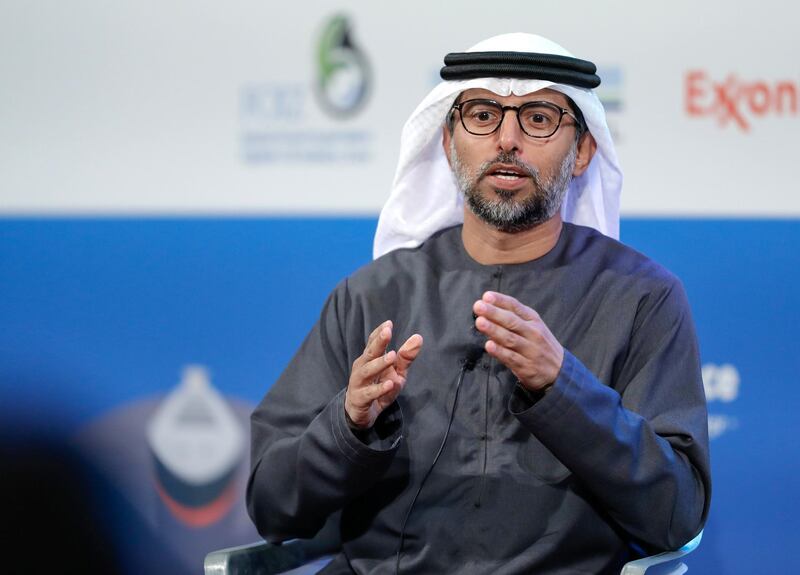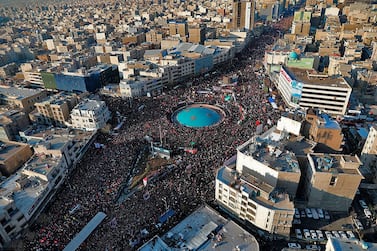Opec will meet any shortage, if needed, should tension between the US and Iran disrupt the security of supply from the region, said UAE energy minister on Wednesday.
"The market is well supplied. We're not forecasting shortage of supply unless there is a catastrophic event which we don't see, so Opec always will meet and discuss whatever necessary actions we need to do," Suhail Al Mazrouei said at the Gulf Intelligence Forum in Abu Dhabi .
Opec members will not take unilateral action, he added, noting that the alliance, which also includes non-members led by Russia, will "assess the situation" when they convene in March.
Opec+, as the alliance is known, began implementing production cuts of 2.1 million barrels a day since the beginning of January. The group agreed to deepen cuts at their annual meeting in December.
Tension between Washington and Tehran escalated on Friday after the US assassinated Qassem Suleimani, the head of the elite Quds Force that is within Iran's Islamic Revolutionary Guard Corps.
Suleimani was Iran's top military commander and was among the top policymakers in Tehran, overseeing proxy military conflicts in the region, notably in Iraq and Syria. His death prompted Iran to declare the US armed forces a "terrorist" entities, with the Supreme Leader Ayatollah Ali Khamenei vowing "tough revenge".
On Wednesday morning, Iran launched missiles targeting American bases in Iraq, with Foreign Minister Javad Zarif saying on Twitter that the country had taken "proportionate measures in self-defense".
Mr Al Mazrouei called for de-escalation on both sides.
"What we need is the security of the oil markets. What we can do is supply and demand, the geopolitics is outside our hand. We’re hoping that both sides will de-escalate," he said.
He said geopolitics had always played a role in oil price forecasts, but this aspect had lessened in recent years as prices were instead determined by the fundamentals of supply and demand.
"We need to go back and look at the bigger picture. Demand in oil has been healthy, the fundamentals the Opec+ [agreement] has worked to achieve are intact ... it's the longest period that we're hovering around the five-year average," Mr Al Mazrouei added.
"We will always work to keep the balance. We don't have a control on wars but definitely we have control on how much we produce so we can ensure [the market] is well supplied and we have healthy economic growth."
He said "every country in the world" would be affected if supply through the Strait of Hormuz, through which one-third of global seaborne oil supplies transits, is cut.
"The world economy cannot sustain $100 oil prices."
Speaking at the same event, Opec secretary general Mohammed Barkindo urged "all leaders in the world to support the leaders in the region to restore normalcy".
The spike in oil prices that has taken place since the last Friday was "very premature, he added.
"A big relief is that the [oil] facilities continue to be secure in Iraq and the production is continuing and not affected."








